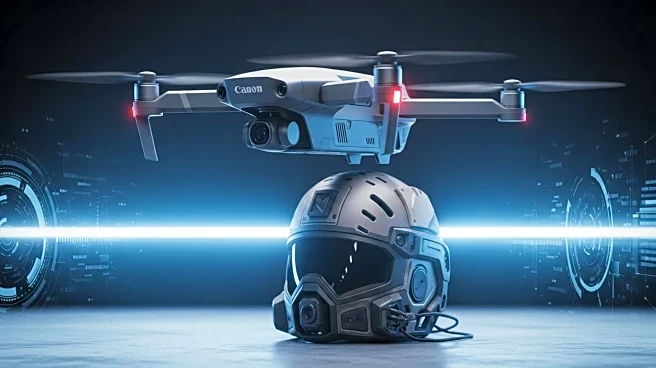What's Happening?
A new wave of defense tech startups in Silicon Valley, known as 'neoprimes,' is attracting billions in funding and challenging the dominance of traditional defense contractors like Lockheed Martin and Boeing. Companies such as Anduril Industries, SpaceX, and Palantir Technologies are leading this charge by developing technologies critical to national security, including hypersonics and cyber capabilities. These startups are characterized by their agility and software-first approach, which allows them to address critical technology gaps more efficiently than their larger counterparts. The U.S. Department of Defense has recognized the importance of these technologies in modern warfare, which now includes cyber and space domains.
Why It's Important?
The rise of these 'neoprimes' signifies a shift in the defense industry, where traditional contractors are being challenged by more agile and innovative startups. This trend could lead to faster technological advancements and more cost-effective solutions for national security. The increased investment in these startups reflects a growing recognition of the need for new technologies to address modern warfare's complexities. This development could potentially reshape the defense landscape, offering new opportunities for investors and entrepreneurs while also posing challenges to established defense giants.
What's Next?
As these startups continue to grow, they may attract more investment and potentially secure more government contracts. The U.S. Department of Defense's interest in dual-use technologies suggests that these companies could play a significant role in future defense strategies. Traditional contractors may need to adapt by either collaborating with or acquiring these innovative startups to maintain their competitive edge.
Beyond the Headlines
The emergence of 'neoprimes' also raises questions about the ethical implications of rapid technological advancements in warfare. The integration of artificial intelligence and autonomy in military applications could lead to debates about the role of technology in conflict and the potential for unintended consequences.










